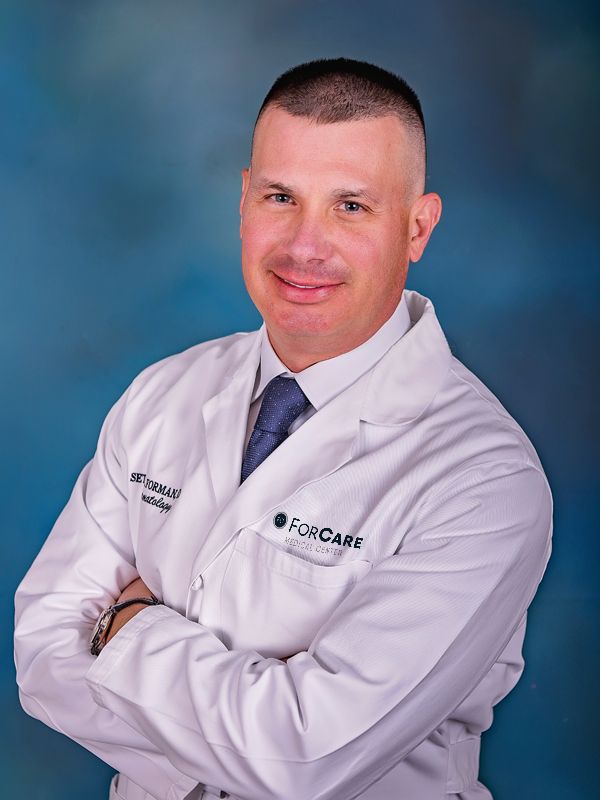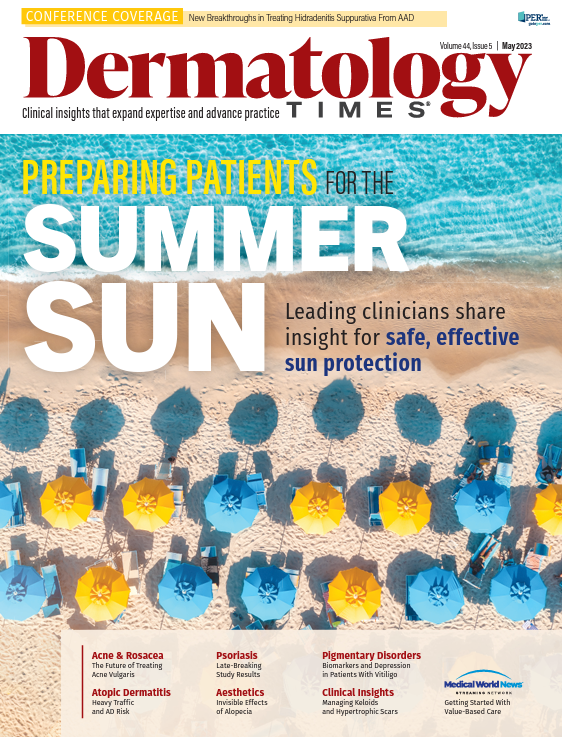- Case-Based Roundtable
- General Dermatology
- Eczema
- Chronic Hand Eczema
- Alopecia
- Aesthetics
- Vitiligo
- COVID-19
- Actinic Keratosis
- Precision Medicine and Biologics
- Rare Disease
- Wound Care
- Rosacea
- Psoriasis
- Psoriatic Arthritis
- Atopic Dermatitis
- Melasma
- NP and PA
- Skin Cancer
- Hidradenitis Suppurativa
- Drug Watch
- Pigmentary Disorders
- Acne
- Pediatric Dermatology
- Practice Management
- Prurigo Nodularis
- Buy-and-Bill
Publication
Article
Dermatology Times
New Data on Investigational Agent for HS Presented at Annual Meeting
Author(s):
Promising phase 2 data for LY3041658 released during the Late-breaking Research session at the 2023 annual meeting.
Who is Danny/Adobestock

“We have been actively seeking HS [hidradenitis suppurativa] therapy for about 10 to 12 years now, with a lot of traction in the last few years,” Seth B. Forman, MD, told attendees in the “Late-breaking Research” session of the 2023 American Academy of Dermatology Annual Meeting in New Orleans, Louisiana.1 Forman shared the latest data on LY3041658 (Eltrekibart), which is proving to be a promising investigational treatment for HS.
Seth B. Forman, MD

The 16-week phase 2 study examined the safety and efficacy of LY3041658 for the treatment of moderate to severe HS (NCT0449350), explained Forman, who is principal investigator of ForCare Clinical Research in Tampa, Florida. During the double-blind treatment period, 67 patients were randomized to the investigation agent (N=45) or placebo (N=22). Achieving Hidradenitis Suppurativa Clinical Response (HiSCR50) at 16 weeks was the primary endpoint; Forman and colleagues looked at the mean change in total abscesses and inflammatory nodules from baseline to week 16 as the secondary endpoint.
The study used standard inclusion and exclusion criteria, Forman reported. Participants were aged 18 to 65 years and had HS for at least 6 months prior to the study. Inclusion criteria included having lesions in at least 2 areas, with at least one rated stage II or III; participants also needed to have at least 4 inflammatory nodules and abscesses in total. Exclusion criteria included having: more than 20 draining fistulae, received any surgical treatment for HS within 4 months, active skin condition that might prohibit proper HS assessments and received any biologic within 3 months. The mean age of participants was similar for placebo and LY3041658 groups (36.1 and 37.1, respectively). The active treatment group had a higher proportion of females to males (78% versus 22% in treatment and 55% versus 45%, respectively). The majority of patients in both groups were white (67% and 73% for treatment versus placebo, respectively). Skin pain score were about 2% in both groups, and both groups had more patients with stage II versus stage III (68%/32% in placebo and 76%/24% in the treatment group).
At 16 weeks, 65.6% of patients who received LY3041658 achieved HiSCR50, compared with 41.1% in the placebo non-augmented group and 32.3 in the placebo augmented group, Forman reported. Patients in the treatment arm also saw a greater decrease at week 16 in the number of abscesses and inflammatory nodules from baseline (-6.8 versus -3.0).
After 16 weeks, the study was continued with an open label format through week 36; a sustained advantage was found for those in the treatment group and response in those who did not previously respond. Of those who responded at week 16, 81.8% maintained HiSCR50 at week 36. For those who did not originally respond to LY3041658, 45.5% achieved HiSCR50 at week 36.
“Efficacy is important, but so are adverse events [AEs],” Forman told attendees, noting the majority of AEs were mild or moderate in the first 16 weeks. Gastrointestinal disorders (including constipation and nausea) were among the most common (17.8%) in the treatment group while infections and infestations (COVID-19, nasopharyngitis, and upper respiratory tract infection) were the most common (18.2%) in the placebo group. During the open label portion of the study, infections and infestations were the most common (48.6% and 23.1% for treatment and placebo/treatment groups, respectively).
LY3041658 is a humanized monoclonal antibody that neutralizes an epitope shared by all 7 the ligands that signal through CXCR1 and CXCR2, explained Forman. Those chemokine receptors are involved in neutrophil migration to sites of inflammation, which is a considered critical process in HS pathogenesis.
“The data demonstrates a promising molecule for a devastating disease,” Forman told Dermatology Times® in an exclusive interview. Although there are medications currently used to treat HS, most are used off-label. Currently, only adalimumab has received US Food and Drug Administration approval.
Did you attend the Late-breaking Research session? Share your thoughts with us via email: DTEditor@mmhgroup.com.
Reference
1. Forman S. Safety and efficacy of LY3041658, a novel septa-specific monoclonal antibody to CXCR1 and CXCR2 ligands, in a phase 2 study in hidradenitis suppurativa. Late-breaking research. Presented at 2023 Annual Meeting of the American Academy of Dermatology. March 17-21, 2023; New Orleans, Louisiana.






